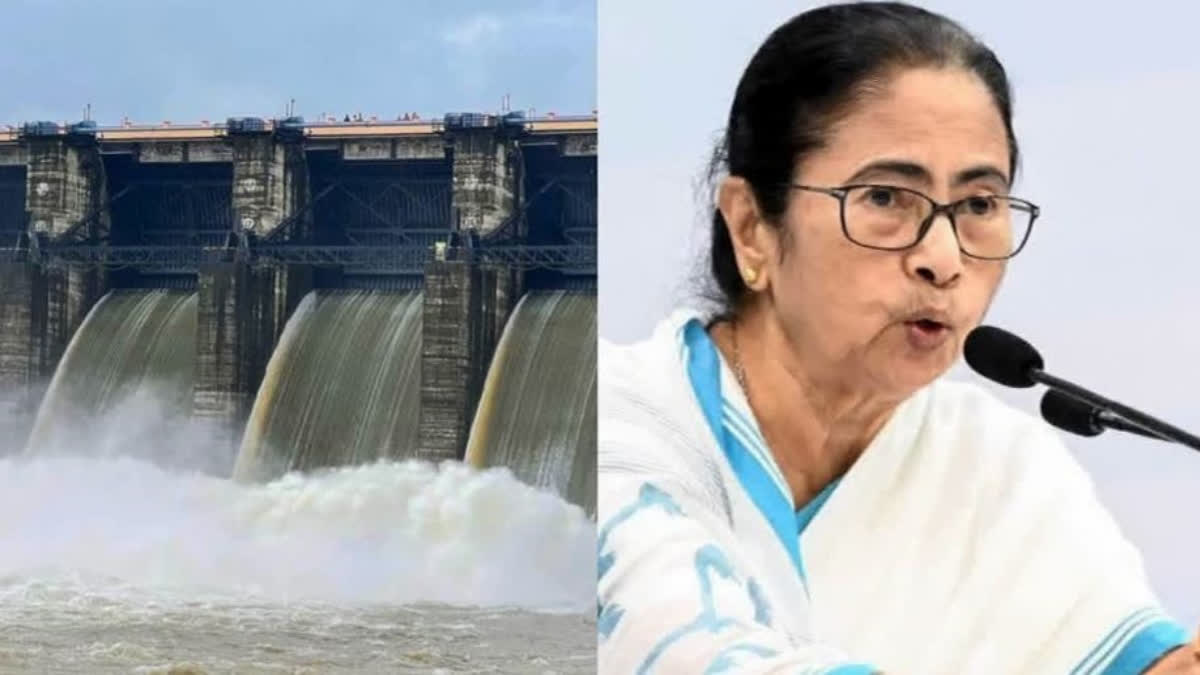Kolkata: Amid the ongoing tug-of-war between the West Bengal government and the Damodar Valley Corporation(DVC), a senior official said on Tuesday said there is no provision for the resignation of representatives of partner state governments from the Damodar Valley Corporation(DVC) Board.
The DVC held deliberations after West Bengal Power Secretary Santanu Basu resigned as a member of the DVC Board over the "unilateral" release of water from its dams leading to flooding in several districts in south Bengal.
"According to the DVC Act, 1948, West Bengal and Jharkhand are participating states and one representative from each state is on the board, besides representatives of the Centre. There is no provision for resignation from the board," the DVC official told PTI.
Another DVC official said the West Bengal government can always nominate a different representative to replace the power secretary, in a departure from tradition, after the flood situation normalises.
Traditionally, the incumbent power secretary has been the representative of the state on the DVC Board.
The Centre and the two state governments are equal partners in the first multipurpose river valley project of independent India.
Section 30 of the DVC Act provides for contribution of capital by three participating governments, viz. the Centre, West Bengal and Jharkhand. It is a statutory liability. They are owners of DVC by virtue of the statue. Statutorily, they cannot disown DVC, sources said.
The DVC (Amendment) Act 2011 has fixed the composition of the board to the chairman, a member (technical), a member (finance), one representative each from the state governments of Jharkhand and West Bengal, three independent experts, one each from the field of irrigation, water supply and generation or transmission or distribution of electricity and a member-secretary, they said.
At present, the posts of the three independent experts remain vacant, DVC officials said. The West Bengal irrigation chief engineer has also tendered his resignation from the Damodar Valley Reservoir Regulation Committee (DVRRC).
State Irrigation Minister Manas Bhunia said, "The unusual and unexpected release of over 5 lakh cusecs of water by DVC was detrimental to the people of West Bengal and destroyed the farm sector."
"Despite Chief Minister Mamata Banerjee requesting the DVC to inform the government before releasing water, in a reasonable amount, but they did not pay heed to it. The Centre also remained mum over the issue. So, the CM has taken a justified stand and our state government representative has resigned from the DVC Board. The Centre and DVC should understand they have no right to destroy the life and livelihood in rural areas," he added.
Bhunia, however, declined to comment on the DVC stating that there is no provision for resignation from the board.
Other sources said that any decision on replacing the power secretary with any other West Bengal government representative will have to come from the top level of the state government.
The power secretary's resignation came amid a war of words between the West Bengal government and the Centre over the release of water from DVC dams.
In an email to the DVC chairman on September 21, the West Bengal power secretary said, "In view of the unprecedented and uncontrolled release of water by the DVC from its dam systems, leading to widespread inundation causing immense sufferings to the people in vast areas of the state, I do hereby tender my resignation as the member of state from the board of DVC."
The state power secretary did not respond to messages seeking comments on the development. West Bengal Chief Minister Mamata Banerjee, in her second letter to Prime Minister Narendra Modi on the issue on September 21, disagreed with the Centre's claim that the water release was carried out by consensus. She asserted that all critical decisions were made unilaterally by representatives of the Central Water Commission of the Ministry of Jal Shakti.
DVC, which is currently undergoing a Rs 50,000 crore expansion to double its generation capacity, was also planning for reforms through corporatisation by unbundling into at least three entities for transmission, generation, and distribution, officials said. (With agency inputs)



